Close
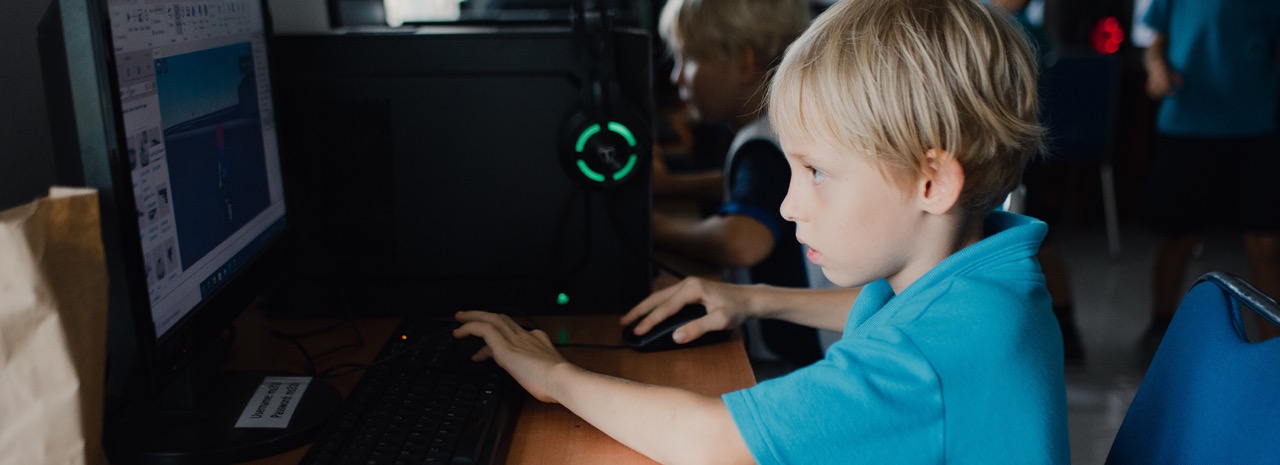
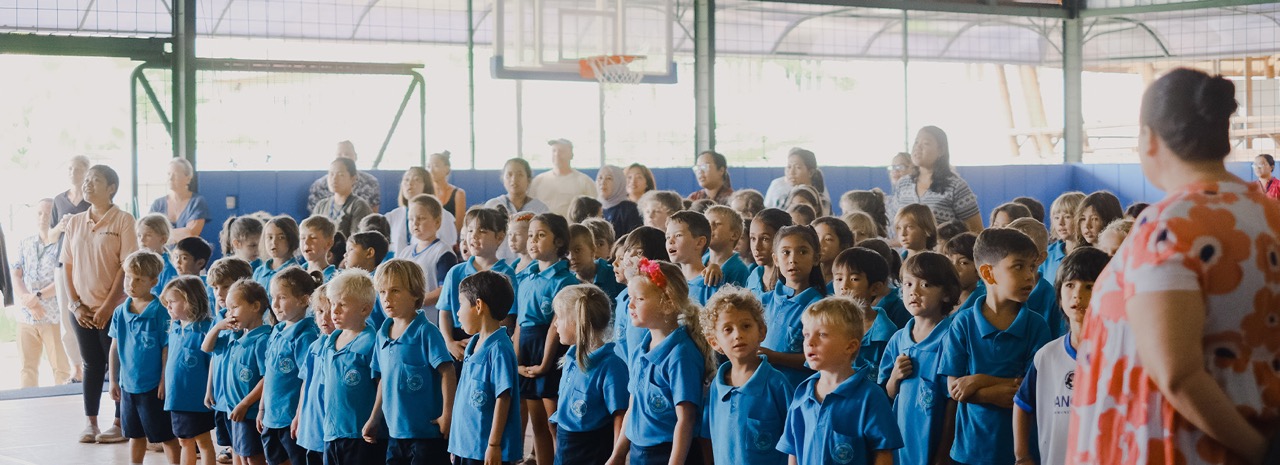
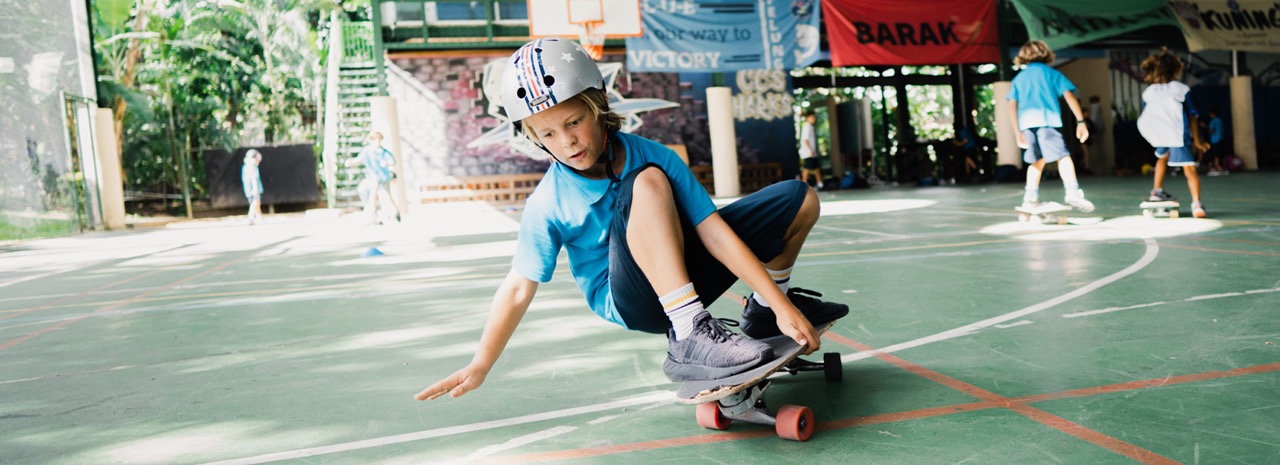
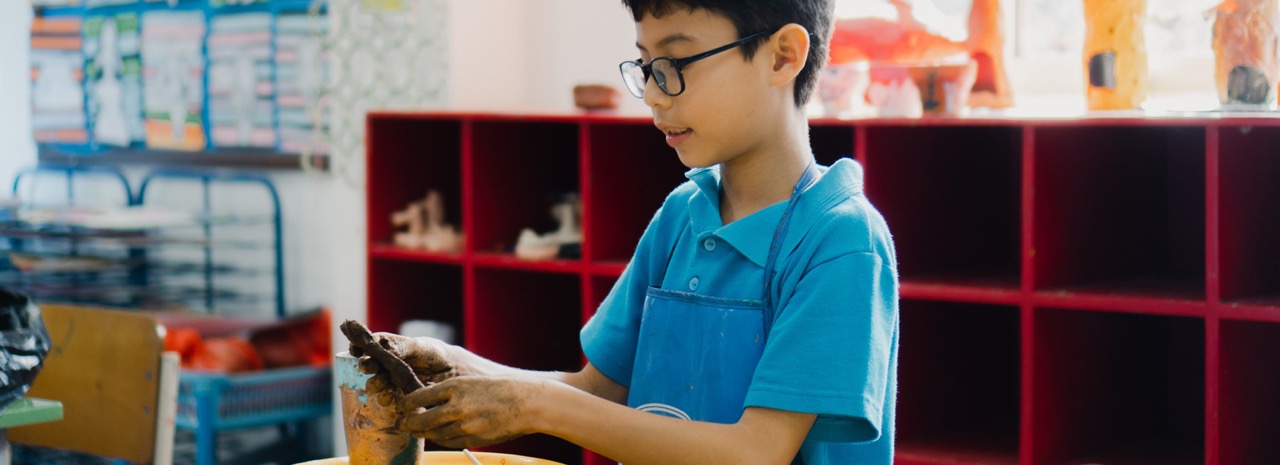
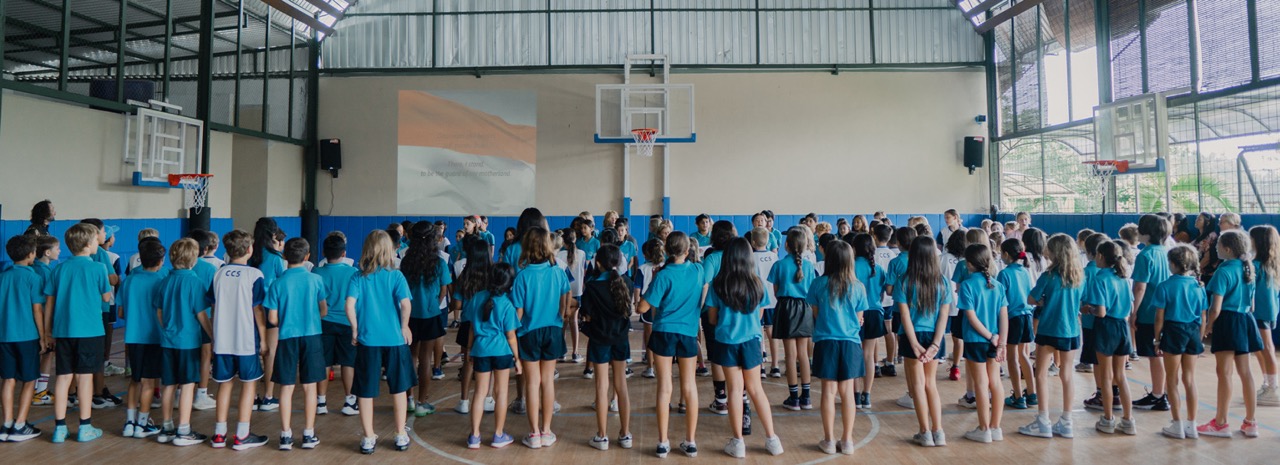
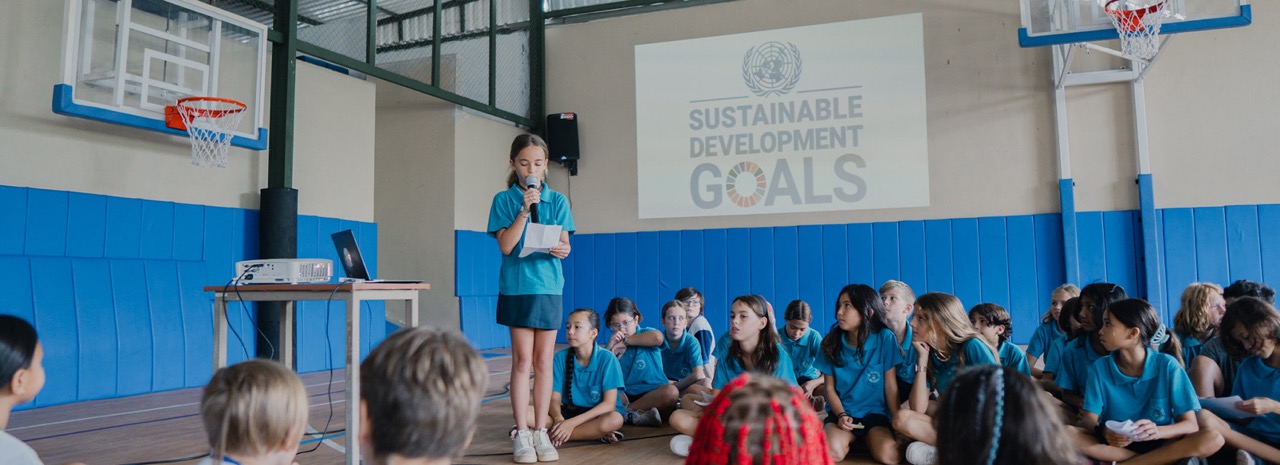
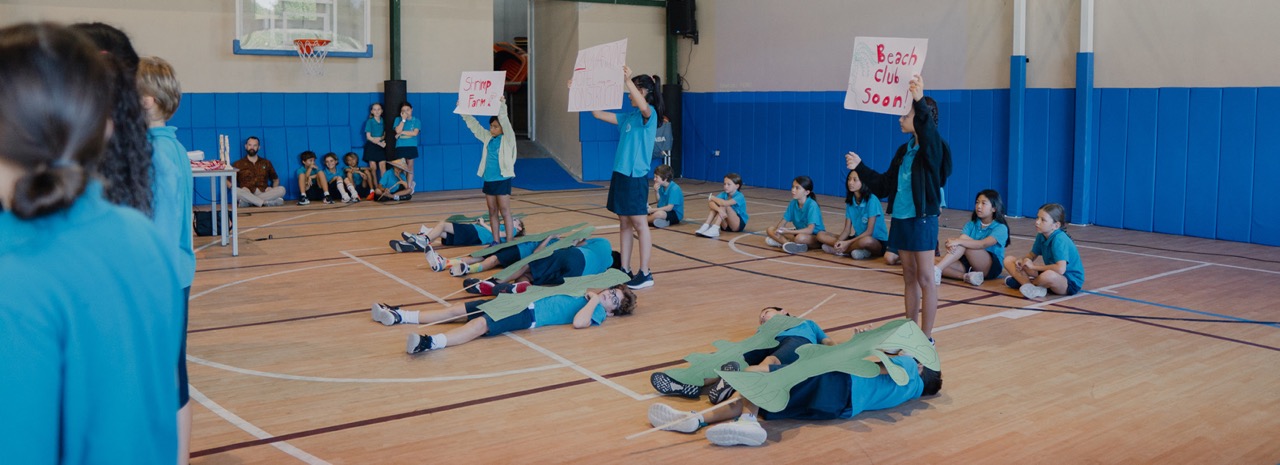
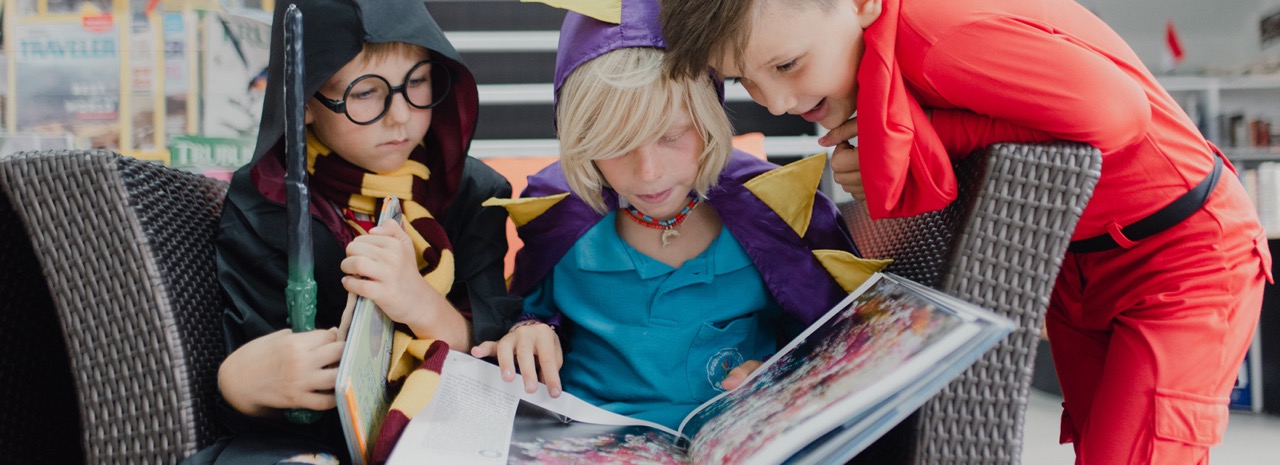
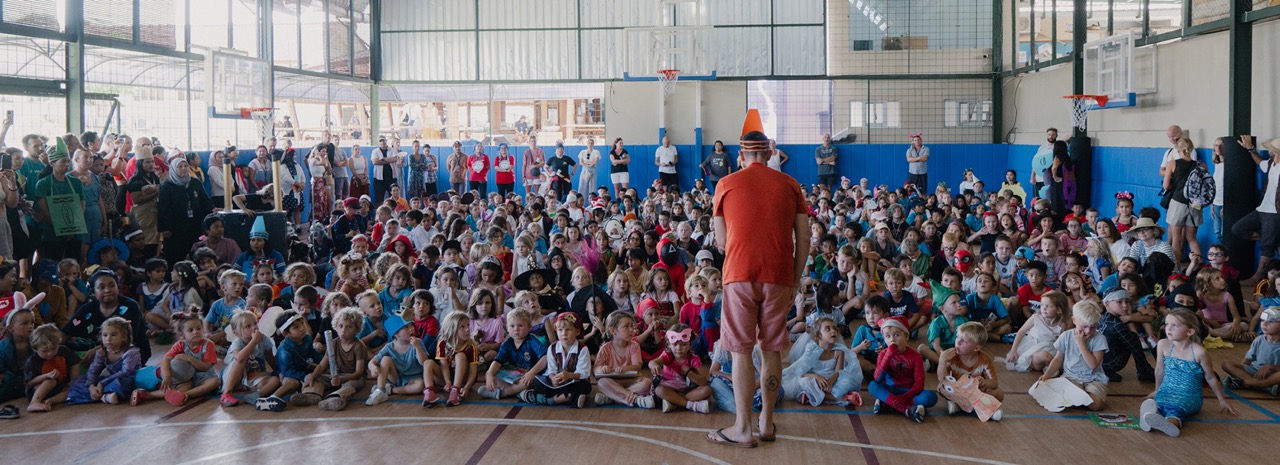
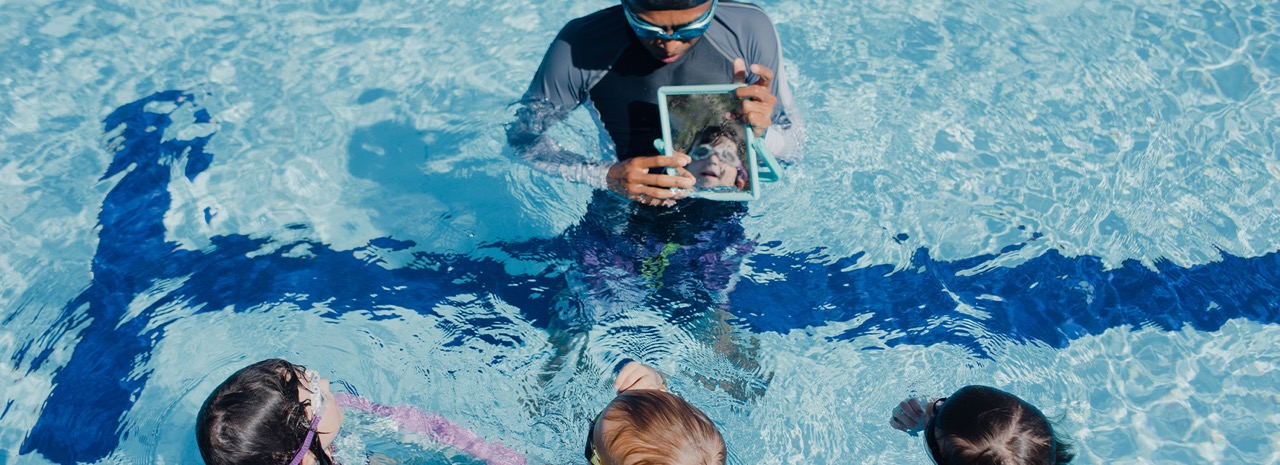

The Primary Program at CCS includes classes from Year 1 to Year 6. We have two classes per year level. The target class size for Year 1-2 is 23 students and Year 3-6 is 25 students. Each class has one expatriate teacher and one qualified Indonesian teacher as a teacher assistant.
Children learn through a stimulating, inquiry-based curriculum with a balance of discovery, innovation and structured work times. Literacy and mathematical skills are developed within a supportive, enjoyable framework. Other curriculum areas are embedded in the programme.
As well as the spacious, air-conditioned classrooms, we have an undercover area at the front and back of the classrooms which act as breakout spaces. These spaces are ideal for wet-day play, independent group work and an additional workspace for students.
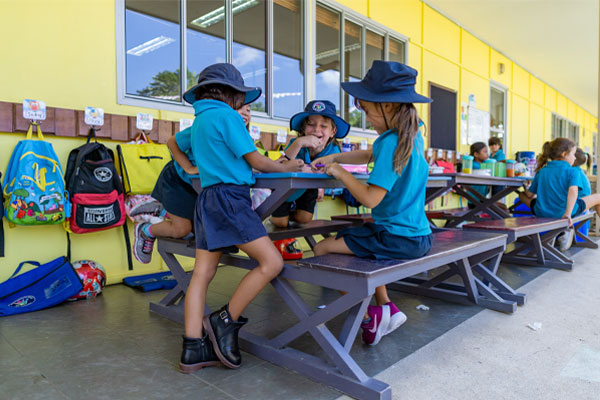
Being part of a larger school, students in Primary play in the large primary playground during break times. Our playground is shaded by trees and has climbing equipment, swings, slides, and nets. There are various other grass spaces and leveled terraces for children to play too.
Children in Year 1-6 start school at 8.20am. Children are encouraged to be responsible for their belongings, such as school bags, water bottles, and home reading books, so the first part of the day is set aside for these organisational skills. The morning play break is at 10.30am – 10.50am and lunch is from 12.30pm to 01.20pm. The school day for Year 1-2 students finishes at 2:20pm and Y3-6 finishes at 3:20pm.
Most learning for Primary students happens in their home-base classroom; however, we have specialist teachers for PE, Swimming, Music, Art, and Indonesian. The class teacher provides families with a class weekly timetable.
Our curriculum is inspired on the English National Curriculum and the Indonesian National Curriculum. We use an inquiry-based learning model as our framework for teaching and learning grounded in literacy. Students learn by exploring the world around them and making connections. They are provided with learning experiences and encouraged to ask questions about what they are doing.
Most learning for our Primary students happens with the classroom teachers but Music, Indonesian, PE, Art, and Swimming are taught by qualified specialist teachers.
As well as the core subjects of Literacy and Mathematics, other curriculum subjects are incorporated into the programme through Units of Inquiry.
| Other curriculum subjects are | |
|---|---|
| History | Geography |
| Art and Design | Design and Technology |
| Music | Physical Education (PE) |
| Bahasa Indonesia | Personal, Social and Health Education (PSHE) |
| Indonesian Studies | |
During the year, the Primary students engage with four Units of Inquiry, one from each of the following organising concepts. Each year, they revisit the themes, focusing on a different aspect and building on a previously acquired understanding of concepts.
These Units of Inquiry help students develop understandings about their identity, their development and the ways in which they can care for their emotional, physical and mental wellbeing as they grow. These inquiries explore the ways in which each person can work towards their potential, develop resilience, build healthy relationships and make wise choices for their own safety and health.
Inquiries also promote an understanding of creative expression and ways in which people manage and communicate their emotions.
These Units of Inquiry develop students’ understanding of different ways communities (both local and global) are organised and the complexity of people’s lives around the world. Students build their understanding of citizenship and increase their skills for active, responsible participation in societies. In addition, these inquiries provide a context for exploring the ways in which people and places change over time and the importance of learning about the past to understanding the present and plan for the future. These units promote learning about the connection people have with their culture and significance of our cultural lives.
Central to these inquiries are the values of social justice, inclusion, and respect for all.
As well as the core subjects of Literacy and Mathematics, other curriculum subjects are incorporated into the programme through Units of Inquiry.
As a culmination of their learning in the Primary school, Year 6 students demonstrate their learning in the form of a Showcase. In groups, students inquire into various topics, research and organise their findings and then develop a presentation where they share their findings. Parents and other members of the community are invited to the Showcase which takes place at the end of the academic year.
Primary students have many special events to enjoy during the year.
Students take part in a productions which incorporate many aspects of the curriculum, including performing arts, music, language, visual art and humanities. Each child gets their glory on the stage and it is a highlight of the school year.
In Term 3, we celebrate the unique festival of Nyepi with each class making an Ogoh–ogoh for our school parade.
During the year we also celebrate other cultural festivals, such as Chinese New Year and Idul Fitri.
Throughout the year, we have Primary school assemblies and house activities. Assemblies are generally connected with an aspect of classroom learning. The class teacher guides the students to take responsibility and organise the assembly themselves. Parents are welcome at all assemblies, whether their child is involved or not.
Sports Day, the Swimming Gala and the School Cross-Country Race are events for our students to compete in various activities where they can learn about doing exercise for enjoyment and learn about competition in a positive environment.

